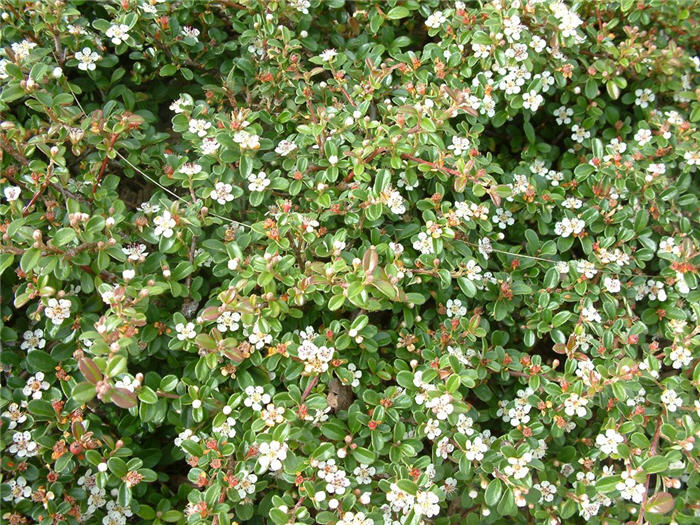| Botanical Name: Cotoneaster dammeri | |
| Common Name: Bearberry Cotoneaster |

-
Anatomy
-
Culture
-
Design
Plant Type
Shrub, Ground cover
Height Range
1-3'
Flower Color
White
Flower Season
Spring
Leaf Color
Green
Bark Color
Brown, Red
Fruit Color
Red
Fruit Season
Winter, Fall, Persistent
Sun
Full, Half
Water
Low
Growth Rate
Moderate
Soil Type
Sandy, Clay, Loam, Rocky, Unparticular
Soil Condition
Average, Rich, Poor, Well-drained, Dry
Soil pH
Neutral, Basic
Adverse Factors
n/a
Design Styles
English Cottage, Formal, Mediterranean, Ranch, Seascape, Spanish, Native Garden
Accenting Features
Fall Color, Showy Flowers
Seasonal Interest
Winter, Fall
Location Uses
Shrub Border, Foundation, Parking Strip, Patio, Parking Lot, Raised Planter, Walls / Fences, With Rocks
Special Uses
Cascade, Erosion Control, Mass Planting, Naturalizing, Small Spaces
Attracts Wildlife
Birds
Information by: Stephanie Duer
Photographer: Steve Mullany
Photographer: Steve Mullany
-
Description
-
Notes
Bearberry cotoneaster is a semi-evergreen shrub that grows about 1.5 feet tall and 6 feet wide. It has a prostrate habit and makes a dense groundcover. It has dark green, ovate to rounded leaves with prominent veins. Small white flowers appear in spring, followed by small, bright red berries that persist into winter. This is a great plant for banks or hillsides as long as it gets full sun. It becomes drought tolerant once it's established. There are several cultivars in the trade, each with its own special qualities.
Grow in any well-drained soil in full to part sun. Wide range of soil tolerance, and pH tolerant. Branches root where they touch the ground. Cotoneaster get very woody if sheared, so prune selectively to control size and shape; see Guides.